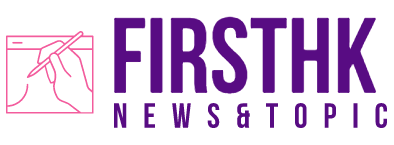
In today's semiconductor industry, what are the pros and cons?
In the past three to four decades, China's social economy has experienced rapid and sustained growth following the implementation of the reform, innovation, and opening up policy. wafer proberHowever, the traditional management model, which heavily relied on real estate, traditional infrastructure projects, and low-end industrial production and manufacturing, has reached its limit. As a result, there will be a necessary shift towards high-tech industries such as biomedicine, artificial intelligence, and high-end product manufacturing, as well as the service sector. This means individuals may seek opportunities in high-tech fields through prestigious education or by gaining access to industrial information resources. Alternatively, excelling in the service industry by providing exceptional services is also a viable option for future job prospects.
Obviously, semiconductors are a good choice, but they require brand-name universities and high degrees, probe test which should be selected according to the individual's needs.
As a result of a post stating that ten million college graduates entered society every year in recent years, I predict that AI technology will soon replace many jobs. People will have to test their upper limits of personal ability, which are determined by their interests and talents, when competing for employment in such fierce competition.
In the future, there will be a significant move towards widespread industrialization and automated production. This will call for not just advanced technology, biomedicine, artificial intelligence, and high-end manufacturing, but also the knowledge of skilled scientific and technological experts. Concurrently, many people are expected to pursue roles in the service sector, where talented and specialized artisans are highly sought after. wafer probing Traditionally, older generations have stressed the value of acquiring a trade to ensure independence. While it is acceptable to aim for a government job or choose a specific career track, failing to reach your full potential could lead to lasting dissatisfaction.
The main reasons for the challenges faced by college students in securing employment are mainly related to the economy, specifically a declining market, low demand, and high competition. In such a job market, it can be difficult to navigate and make the best decisions regarding our career paths and use of technology. However, our individual abilities play a significant role in determining our potential for success. By pursuing our interests and fully utilizing vocational education, we increase our chances of achieving greater accomplishments.
I'm an architect. I've drawn since primary school. I doodled on my textbooks. As I got older, I realized I had a strong interest in drawing and a natural ability to visualize space.
After graduation, I applied to the Department of Architecture at the Provincial Architectural College based on my major and interest in space drawing.
In terms of work experience, my passion for painting, specifically geometric and spatial art, kept me energized and fulfilled throughout my projects. As a result, I became the lead designer for several years. Despite the fact that our design institute has suffered from the real estate market in recent years, I believe I could easily transition into a career as a home decor designer if necessary. After all, I have already gained essential skills in this area.
In the workplace, it is widely accepted that incorporating personal interests into one's career can greatly foster enthusiasm and success. Back in 1959, a renowned psychology professor by the name of Holland introduced his theory of occupational interest, which has since had a profound impact on society. According to Holland, an individual's personality and interests are closely intertwined with their career path, and having strong interests can be a powerful motivator for their activities. When a job aligns with one's professional interests, it can fuel their passion and drive, resulting in active and fulfilling involvement in their work. Ultimately, this allows individuals to tap into their full potential and leads to more meaningful job performance.

.jpg?x-oss-process=image/resize,p_100/format,webp)









